Facilitating Climate Finance, Carbon Credits, and Carbon Neutrality for Governments,
Corporations, and SMEs across the Pan-African Region.
Our innovative Carbon Trading Platform, combined with dedicated support in Carbon Project
Development, Registration, Certification and Financing Support, transforms environmental
challenges into economic opportunities.
Start your Carbon Neutrality Journey with us!
Our mission is to provide end-to-end support to boost the sustainable carbon neutral transition in Africa. Through immense support in project design, certification, and compliance with local policies, we unlock the potential of the caron market and help to achieve their sustainability goals.
Our carbon trading solutions offer a streamlined, accessible way for African communities to generate revenue from their environmental initiatives. With a user-friendly platform, we connect enterprises with diverse buyers, maximizing the value of carbon credits while helping organizations offset emissions.
We also engage on offering resources and partnerships for high-impact projects, to accelerate the success of the carbon journey from project initiation to credit issuance. Our extensive network of financiers, certification bodies, and local validators helps overcome typical barriers and help make the process smoother.
We also focus on building and strengthening the local capacity, with equipping the community with skills, training programs and affordable project validation services. With this the African carbon market would be a self-sustaining and resilient one where businesses can actively part-take in the shaping of a sustainable future.
This initiative helps to fast-tack Africa’s pathway toward a carbon-neutral future, by bringing together global stakeholders to share resources and expertise. This promotes renewable energy sources like solar, wind, and hydro which supports reduced emissions, sustainable development, and economic growth across the continent.
The carbon trading platform transforms environmental challenges into economic opportunities for African enterprises. This enables businesses to offset emissions while contributing to a sustainable economy. By establishing a marketplace for carbon credits, this initiative empowers businesses and communities to engage actively in climate goals while benefiting financially.
This program addresses energy access gaps and infrastructure limitations across Africa’s rural and urban areas by establishing strategic partnerships and investments. This helps communities to be able to afford access to sustainable energy and improve the quality of life.
Collaborations with policymakers strengthen regulatory frameworks that attract investments in renewable energy and carbon markets. This initiative fosters policies that builds an enables an environment that encourages sustainable growth, facilitates carbon trading.
Empowering local communities is essential for sustainable growth. Through comprehensive training and educational programs, this initiative equips local professionals and residents with skills and tools to participate in a low-carbon economy, ensuring communities to contribute to and benefit from a low-carbon economy.
This initiative drives advancements in technology and infrastructure, by fostering research and development partnerships with academia, research institutions, and private-sector partners. With the investment in innovation, this aims to make clean energy more efficient, accessible, and resilient across Africa.
Enhancing Economic support by promoting sustainable practices across sectors like agriculture, forestry, and urban planning. By implementing eco-friendly solutions, it strengthens both environmental and economic growth, paving the way for a sustainable future across the African continent
Pan Africa Carbon had the honor of presenting its Carbon Trading Software to the Government of Kenya, hosted by Forestry Principal Secretary Mr. Gitonga Mugambi. The meeting covered a range of essential topics, including the potential for climate finance to stimulate Kenya’s green economy and the role of a comprehensive carbon credit management system in enhancing transparency and efficiency in carbon trading. This initiative aligns with Kenya’s vision of positioning Nairobi as the carbon trading capital of Africa by 2025, offering a transformative platform for carbon market activities and supporting sustainable development goals across the region.
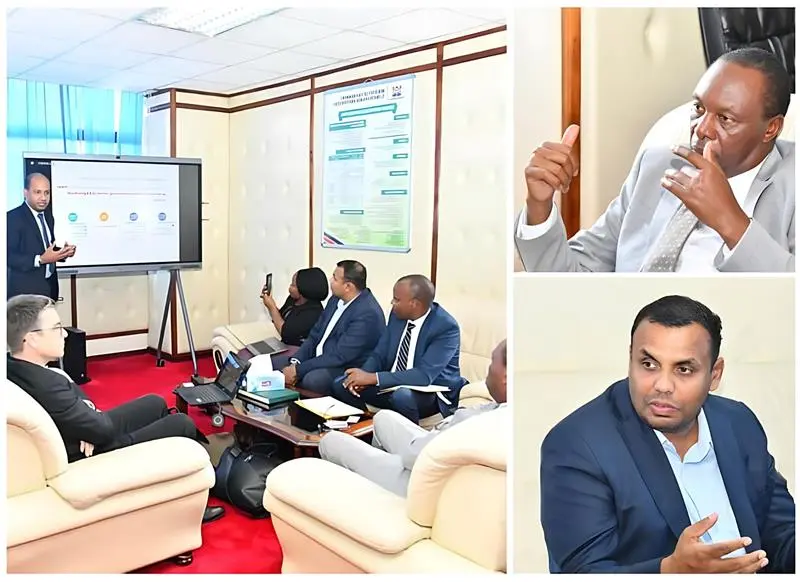

Pan Africa Carbon is thrilled to announce the development of systems for the Digital Transformation of Sri Lanka's Climate Finance and Carbon Markets. This impactful project is funded and guided by the United Nations Development Programme (UNDP) and overseen by the Ministry of Environment. The initiative aims to digitalize climate finance and carbon trading through the creation of a National Carbon Registry for Sri Lanka, designed to enable real-time carbon trading and promote sustainable environmental practices.
Pan Africa Carbon, has officially signed a Memorandum of Understanding (MOU) with Meru University of Science and Technology in Kenya. This strategic collaboration focuses on developing a robust Carbon Trading framework for the Government of Kenya, aimed at supporting national sustainability goals and advancing carbon trading initiatives throughout the region.

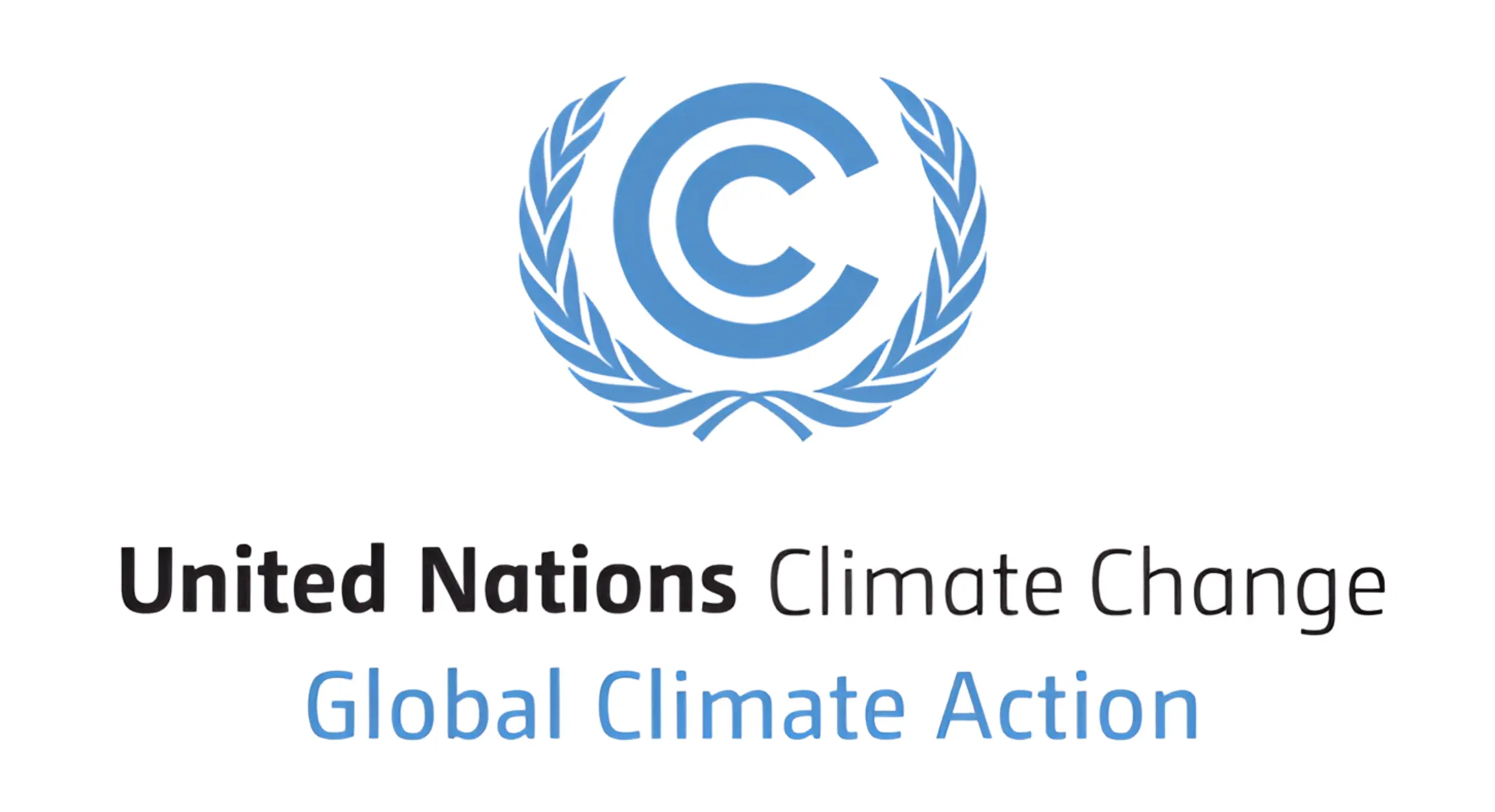
Pan Africa Carbon has onboarded a UNFCCC-accredited CDM certifier, reinforcing its commitment to high standards in carbon credit certification. This partnership aims to enhance the credibility of Pan Africa Carbon’s projects by ensuring alignment with internationally recognized emission reduction standards, positioning the company as a reliable provider of certified carbon credits within the African market.
Africa holds a transformative opportunity to combat climate change while fostering sustainable development and economic growth. By trading carbon credits, African nations can capitalize on their initiatives to enhance carbon sinks and reduce greenhouse gas emissions, generating critical funding for key development projects. Additionally, this approach is set to create extensive employment opportunities, empowering local talent and supporting a resilient green economy.
Africa’s strategic engagement in carbon credit trading unlocks a spectrum of sustainable solutions that fuel economic growth and reinforce environmental stewardship. By generating increased foreign currency earnings and expanding tax revenues, the carbon credit market provides governments with essential resources to advance national development priorities. This approach further propels Africa toward achieving its emission reduction targets, supporting the expansion of renewable and environmentally friendly energy sources that benefit both communities and ecosystems. Additionally, the carbon credit market creates substantial employment opportunities, building a resilient green economy that leverages local talent and fosters sustainable growth. Collectively, these initiatives underscore Africa’s commitment to a prosperous, resilient, and sustainable future.
However, challenges such as precise measurement of credits, market accessibility, and the establishment of robust legal frameworks must be addressed. Strengthening institutional frameworks, improving reporting and monitoring technologies, and encouraging regional cooperation are critical steps. Additionally, public-private partnerships should be utilized, and projects that engage local communities and support environmental sustainability should be prioritized. By implementing these strategies, Africa can build a strong carbon market that not only promotes long-term development but also contributes to the achievement of climate goals.
The carbon credit market in Africa is still in its developmental stages, with Africa contributing only around 11% of the voluntary carbon market's retired credits globally as of 2016. Despite this, the continent has a vast untapped potential, with estimates suggesting it currently realizes only about 2% of its annual capacity for carbon credit generation. This underutilization is attributed to several challenges, including limited infrastructure, financing barriers, and complex regulatory environments.
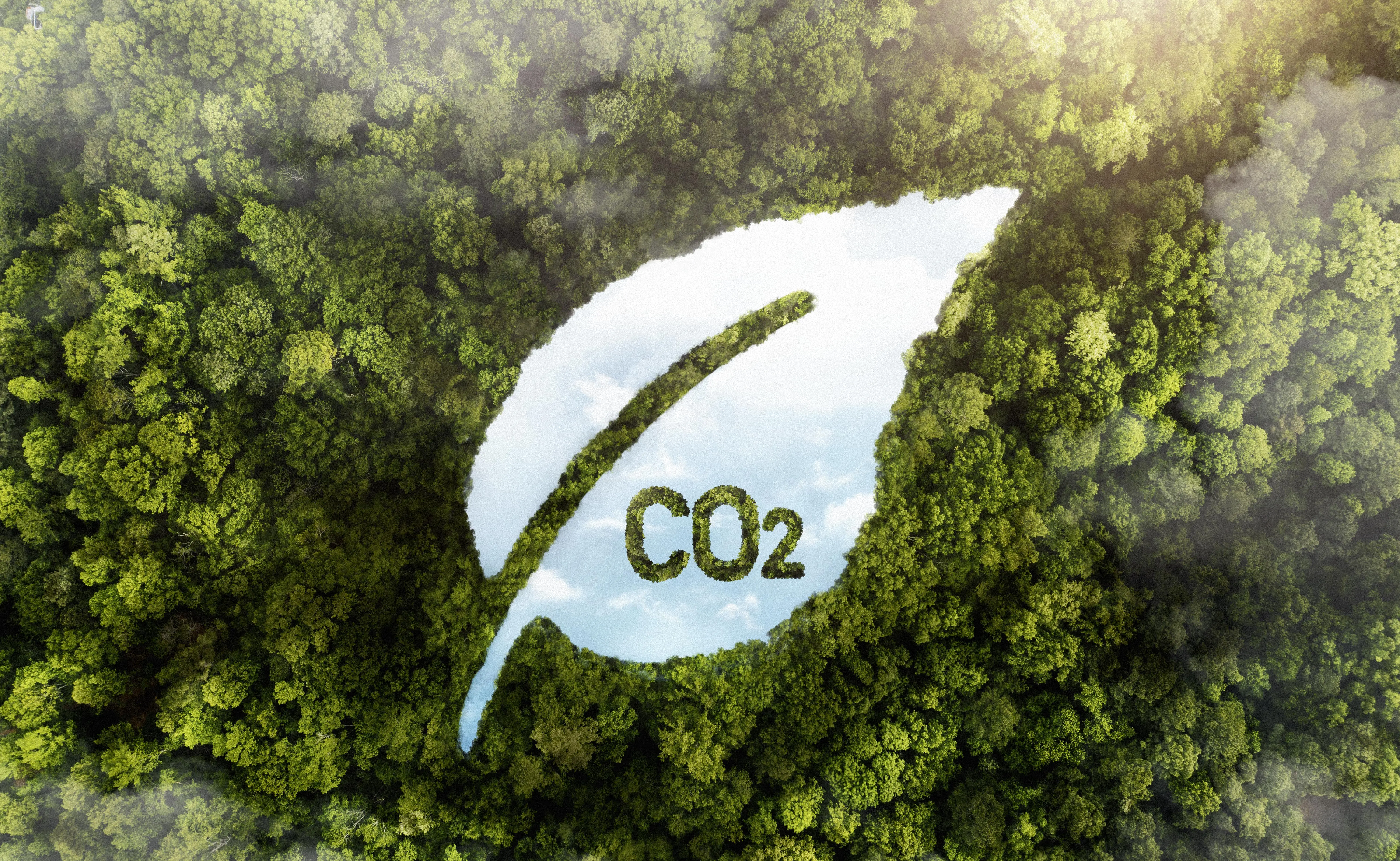

The growing global demand for carbon credits, driven by sustainability goals and carbon neutrality targets, presents significant opportunities for Africa’s carbon credit market. However, Africa’s capacity to meet this demand is hindered by limited infrastructure and project verification systems. By leveraging its natural assets - renewable energy, forests, and land for carbon sequestration - the region can overcome these barriers. With improved market access and local capacity development, Africa is well-positioned to expand its role in both compliance and voluntary carbon markets, which are expected to see substantial growth in the coming years.
The carbon credit market in Africa is poised for a promising future due to the increasing global demand for emissions reductions and sustainable practices. Africa’s rich natural resources, coupled with its potential for renewable energy, make it an attractive source of carbon credits. To unlock this potential, innovative financing models and public-private partnerships will play a crucial role in driving investment, ensuring that projects also bring benefits to local communities. As Africa becomes more involved in international carbon initiatives, its carbon credit market is expected to have a significant impact on both sustainable development and climate change mitigation efforts

Experience the future of carbon markets through our advanced digital platform. Streamline your carbon trading processes and contribute to meaningful environmental impact.
Our advanced digital platform is designed to transform the way individuals and organizations manage their carbon footprints. By utilizing the latest technologies, we provide a seamless, secure, and transparent environment for carbon credit trading, simplifying the process of supporting global sustainability initiatives.
As the urgency to address climate change grows in today’s rapidly evolving world, our platform offers an accessible way to engage in carbon trading. It empowers users to make impactful decisions that significantly reduce greenhouse gas emissions. Whether you are an individual committed to making a difference or a corporation looking to offset emissions, our digital carbon market equips you with the tools and expertise to meet your sustainability goals.
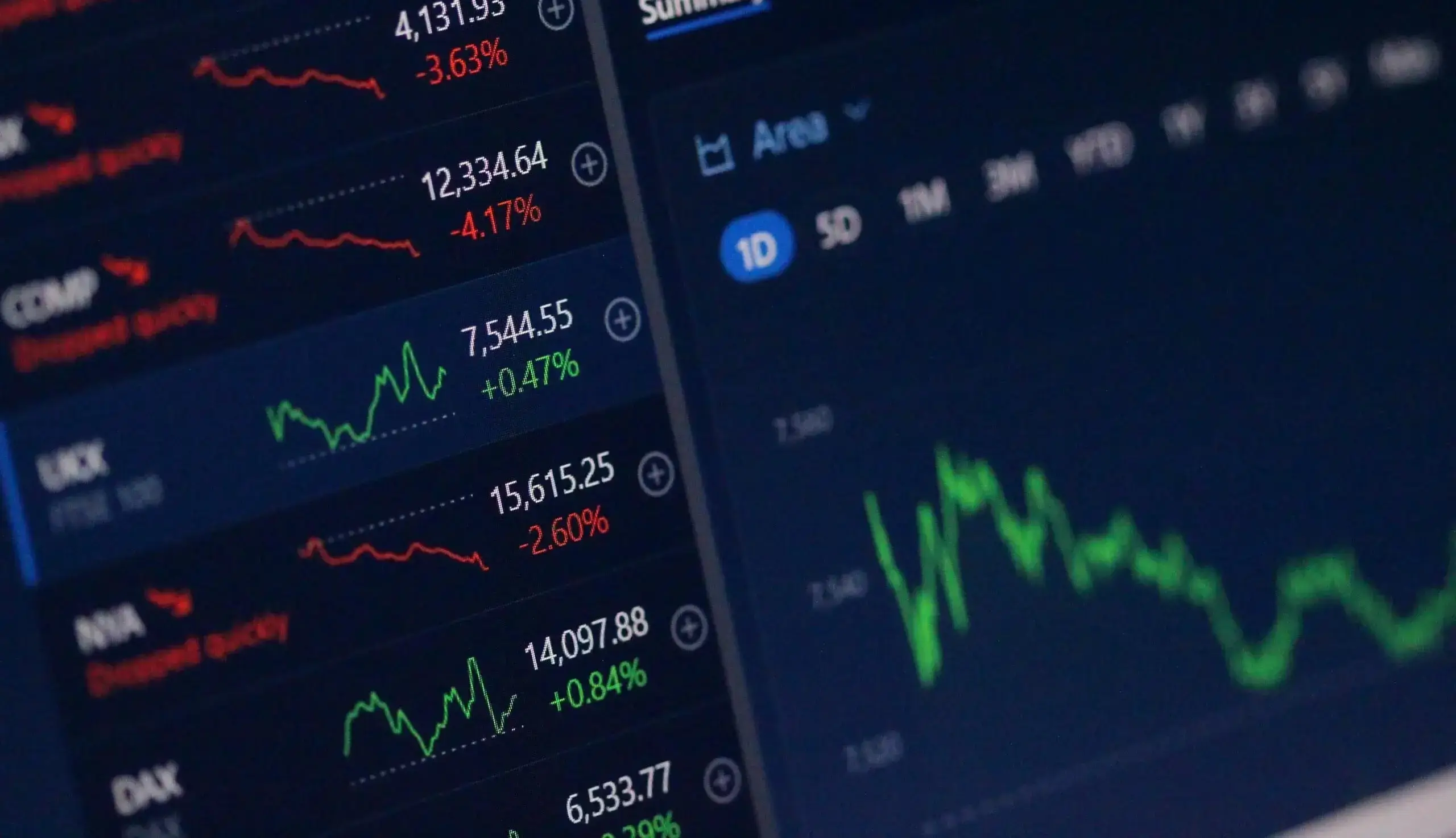
The Digital MRV system ensures accurate GHG emission reductions by enabling systematic measurement, reporting, and independent verification. This digital approach enhances transparency, efficiency, and scalability for real-time tracking and verification.

The Carbon Registry is a centralized digital platform that tracks, verifies, and manages carbon credits, ensuring transparency, market integrity, accountability, and traceability. It prevents double counting, boosts trust, and provides a reliable record of verified emission reductions.
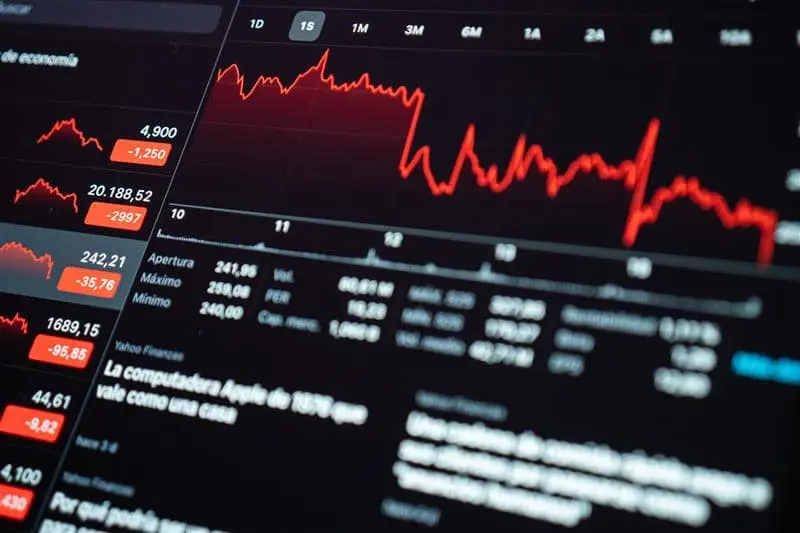
Xeptagon Exchange is a transparent digital platform that enables seamless carbon credit trading by securely connecting buyers and sellers. It ensures efficient transactions through secure payment systems, providing an accessible and reliable trading experience.
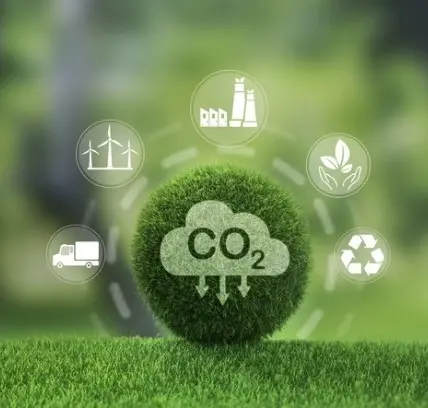
A Greenhouse Gas (GHG) Inventory is a detailed account of greenhouse gas emissions and removals within a defined boundary, such as a country, organization, or project. It tracks GHG sources and sinks, providing critical data to measure progress toward emission reduction goals
Kenya is well-positioned to leverage the commercial value of carbon credit generation, thanks to its rich natural resources, including forests, agricultural land, and renewable energy potential. The country has emerged as a key player in Africa’s carbon credit market, with notable successes, such as the sale of 2.2 million carbon credits, which generated significant revenue. This highlights the growing global demand for carbon offsets and Kenya's role in meeting these needs.
Xeptagon is a team of experts specializing in Climate Finance, Fintech, and Research and Development (R&D) software development, dedicated to addressing complex business challenges. Our innovative solutions empower major enterprises, including Fortune 500 companies, intergovernmental organizations, governments, leading global universities, and pioneering start-ups, to harness advanced technology for a competitive edge in their respective fields.
Mayleen Corporation, based in Kenya, operates across sectors like Infrastructure, Aviation, Renewable Energy, Power Transmission, and e-mobility. Its subsidiary, ChargeNET Kenya, launched in 2021, is the country’s first public EV charging company. Mayleen focuses on advancing zero-emission mobility solutions, investing in e-bikes, battery swapping stations, and e-bike financing in partnership with key players across Kenya.
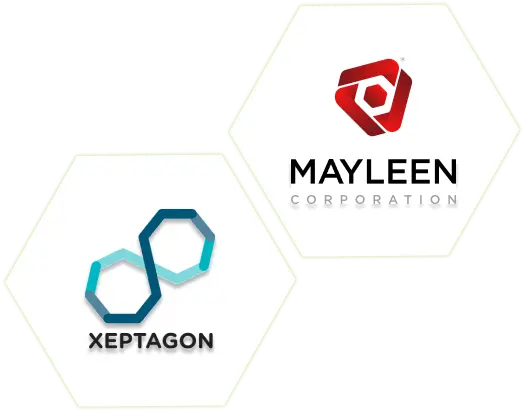
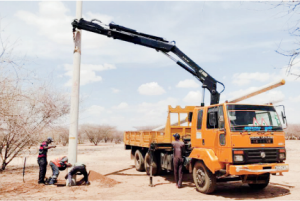
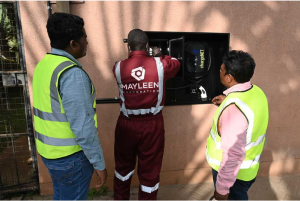
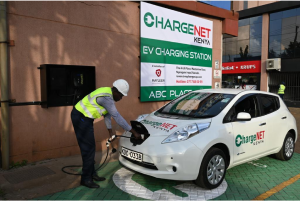
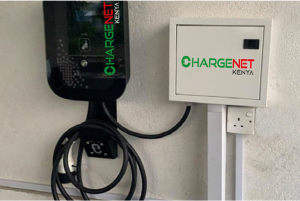
A carbon market is an online marketplace for the purchase and sale of carbon offsets. A reduction of one ton of carbon dioxide (CO2) from the atmosphere is represented by these credits. These credits are available for purchase by businesses and individuals to help fund environmental initiatives and offset their carbon emissions.
Blockchain technology is used by our digital platform to enable safe and open transactions. Customers can track their investments, purchase and trade carbon credits, and view the real-time effects of their efforts.
Buying carbon credits encourages sustainable projects, particularly in developing nations like Africa, and lowers global carbon emissions. Additionally, it enables companies to raise their corporate social responsibility profile and accomplish their environmental aims.
Of course! To reduce their carbon footprint, promote sustainability projects, and improve their corporate social responsibility efforts, businesses can buy carbon credits. We provide customized solutions to companies of all sizes.
Compliance carbon markets are regulated by government mandates that require companies to limit their carbon emissions, often through a cap-and-trade system. Voluntary carbon markets, like ours, allow businesses and individuals to voluntarily purchase carbon credits to offset their emissions and support environmental projects.
Using a digital platform increases productivity, security, and transparency. In addition to lowering the price and complexity of conventional carbon markets, it enables real-time tracking of transactions and project impacts.
Our Carbon Trading Platform, combined with expert support in project development, registration,
certification, and financing, empowers governments, corporations, and SMEs to achieve impactful
environmental and economic outcomes.
We’re here to turn your climate goals into tangible
opportunities, fostering sustainability and unlocking the potential of climate finance across the
Pan-African region.
Connect with us to make a lasting difference!